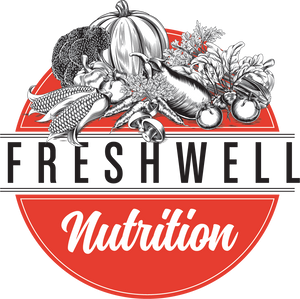During a tough weight lifting workout or endurance event, your muscles are broken down and energy stores are depleted. In order to grow, build strength and improve, muscles need to be repaired and energy levels need to be restored. Refueling with recovery foods that are packed with amino acids, electrolytes, antioxidants and phosphates can help you be ready for the next session fast.
Foods for Workout and Muscle Recovery
Protein is not only responsible for building and repairing muscle, it’s also required to make enzymes, hormones, and other chemicals within the body, and is an important building block for hair, nails, bones, cartilage, muscles, skin, and blood.
Though protein is important, let’s focus on amino acids -- specifically branch chain amino acids (BCAAs) -- isoleucine, leucine, and valine – essential amino acids that have been shown to reduce muscle soreness and reduce fatigue during workouts. BCAAs can be found primarily in dairy, soy, beef, chicken, fish, and eggs. Some beans, chickpeas, lentils, whole-wheat grain products, brown rice, and nuts contain BCAAs. L-Glutamine is another amino acid that may benefit muscle recovery; it is found in many of the same foods listed above, and also a number of vegetables and fermented foods. Glutamine has also been shown to reduce muscle soreness before and after exercise; and it may reduce fatigue during a workout.
Foods That Help with Muscle Soreness and Inflammation
When blending up your post-workout smoothie, consider tossing in some of these ingredients to improve sore muscle recovery and reduce inflammation:
Tart Cherry Juice – Tart cherries are the sour version of the cherries most commonly known and loved. A human study published in February of 2019 showed that tart cherry juice taken regularly for 12 weeks reduced biomarkers for inflammation and oxidative stress (Tart Cherry Juice Study). In addition, it showed a significant increase in DNA repair as measured in the blood. It’s hard to believe that this simple little fruit can actually reduce inflammation and soothe sore muscles. No wonder tart cherry has become a secret weapon among serious endurance athletes in recent years.
Bromelain – a protein-digesting enzyme found in pineapple, Bromelain is most commonly used to aid in digestion. Bromelain may also have benefits for workout recovery and sore muscle recovery in that it reduces inflammation and muscle soreness.
Turmeric – the spice that gives curry its yellow color; turmeric’s active compound is curcumin, a very powerful antioxidant and anti-inflammatory. The antioxidant and anti-inflammatory properties of curcumin can prevent free radical damage and aid in workout recovery.Cruciferous Greens (aka broccoli, cauliflower, Brussels sprouts, and cabbage) – cruciferous veggies are rich in phytonutrients and glucosinolates. Glucosinolates are organic compounds that are rich in both nitrogen and sulfur. Nitrogen is the key element in protein we need to build muscle, while sulfur plays an important role in the metabolism of that nitrogen. Together, this dynamic duo supports the body’s ability to help lower inflammation and prevent cellular damage.
Food for Runner’s Recovery
Avid and competitive runners have a unique set of needs to avoid damaging joints due to repetitive endurance workout sessions. Runner’s recovery is of utmost importance and steps should be taken to ensure foods for recovery are included in the runner’s daily workout recovery routine.Focus on foods high in sodium phosphates to help reduce muscle pain after long duration endurance runners’ workouts. Phosphorus is an essential mineral that plays an essential role in boosting energy at the cellular level. It’s also been shown in clinical studies to help buffer lactic acid which causes muscle fatigue (Sodium Phosphate Boosts Sport Performance). Phosphorus is generally plentiful in animal-based food sources like meat, poultry, fish, milk and eggs. But those seeking to stay with a more plant-based diet for sports performance will be happy to know that certain legumes, namely chickpeas, pinto beans, and navy beans are an excellent source of phosphorus.
Foods That Help Prevent Dehydration
Risk of dehydration is something to consider post-workout. While water is always a great option for replenishing fluids, did you know foods improve hydration too? Look for foods rich in natural electrolytes (potassium, sodium, and minerals) like bananas, raisins, coconut water, avocado, butternut squash, and even pumpkin seeds.
Subscribe Here for More Helpful Info
If you found this article helpful, please let us know in the comments and signup for our newsletter where we will share other tips and information from vitamin industry insiders.
Please subscribe below:

